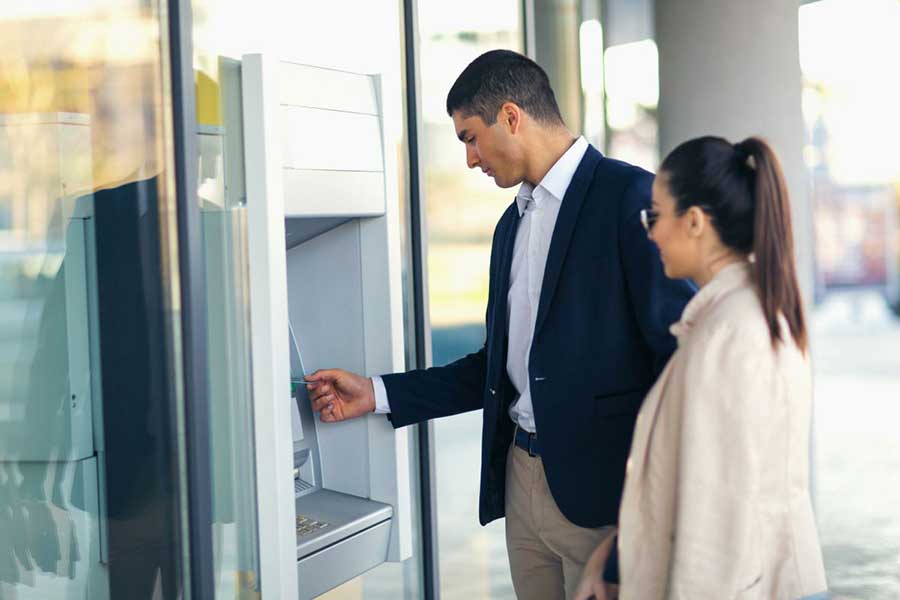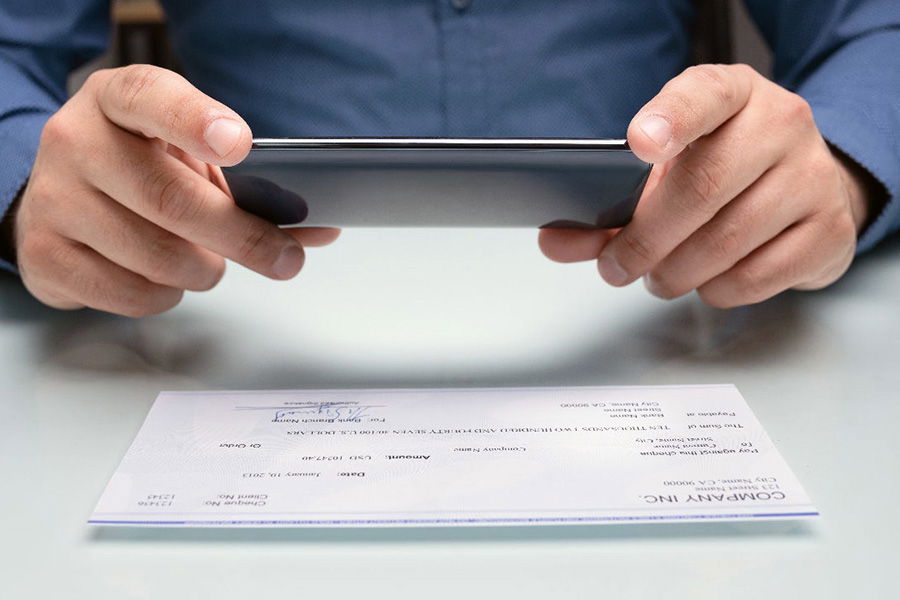Many people find direct deposit to be a hassle-free and efficient way to receive their regular income, like paychecks. But a common query among those who opt for direct deposit is: “What time does the money hit my account?”

The answer to this question can differ based on various elements, such as the financial institution handling the transfer and the specific terms of the deposit arrangement. Nevertheless, it’s typical for direct deposit funds to be ready for use in the account on the morning of the agreed-upon payment date.
How Direct Deposit Works
Direct deposit is a hassle-free and secure method of moving money from one account to another electronically. It’s commonly used for receiving paychecks, where the employer sets it up for their employees.
The process starts with your payroll department providing you with a simple form to fill out. It will ask for your bank account information, such as your routing number and account number.
On the designated pay date, the employer initiates the transfer by sending the electronic funds transfer (EFT) through the Automated Clearing House (ACH) to the employee’s bank.
The bank then processes the EFT and makes the funds available in the employee’s account. The employee can choose to deposit the funds into their checking or savings account, or even split the deposit between the two.
Factors that Affect the Timing of Direct Deposit
The timing of direct deposit can be influenced by several elements, including:
- Bank processing: Different banks have varying methods and systems for processing EFTs, which can impact the availability of funds in the employee’s account.
- Deposit agreement: The agreement between the employer and the employee’s bank might dictate a specific time of day for the deposit to occur.
- Payroll schedule: The employer’s payroll schedule can also have an effect on the timing of direct deposit. For instance, if payroll is processed weekly, the deposit will happen on the designated pay date. On the other hand, if payroll is processed bi-weekly, the deposit will happen on the designated bi-weekly pay date.
What time of day does direct deposit hit?
The specific time that direct deposits hit can be affected by several factors, as previously discussed. In general, direct deposit becomes available in the account on payday morning.
For example, if your pay date is on a Friday, you can expect the funds to be accessible in your account sometime on Friday morning. However, it’s advisable to verify the specific timing of direct deposit with your financial institution to avoid any confusion.
What is early direct deposit?
Early direct deposit is a convenient feature offered by certain banks and credit unions, which enables employees to receive their direct deposit payments ahead of the standard pay date. This can be beneficial for employees who require immediate access to their funds for expenses like bills or purchases.
The specifics of early direct deposit may differ depending on the bank or credit union. Usually, it involves receiving the deposit earlier than the standard pay date, but after the payroll has been processed.
See also: Banks That Offer Early Direct Deposit
Direct Deposit Times for Major Banks
A comparison of direct deposit times for some major U.S. banks and credit unions.
| Bank | Direct Deposit Time |
|---|---|
| Ally Bank | Up to two days before scheduled payment |
| Bank of America | Same business day |
| Capital One | Up to two days before scheduled payment for 360 Checking |
| Chase | Same business day or up to two days early for select accounts |
| Chime | Up to two days before scheduled payment |
| Citizens Bank | Up to two days before scheduled payment |
| Citi | Same business day |
| Fifth Third Bank | Same business day or up to two days early for select accounts |
| First Republic Bank | Next business day |
| Huntington National Bank | Up to two days before scheduled payment |
| Pentagon Federal Credit Union | Up to two days before scheduled payment |
| PNC Bank | Same business day |
| TD Bank | Same business day |
| Truist | Next business day |
| USAA | Up to two days before scheduled payment |
| U.S. Bank | Same business day |
| Wells Fargo | Up to two days before scheduled payment |
Benefits of Direct Deposits
Receiving payments through direct deposit is both practical and hassle-free. One of its key advantages is that it gets rid of the need for paper checks, thereby reducing the risk of them getting lost or stolen.
Furthermore, direct deposit automatically transfers funds into the recipient’s account, making it a perfect solution for individuals residing in remote locations or facing mobility difficulties.
Direct deposits also guarantee timely and dependable payment, which is essential for employees or beneficiaries who rely on regular payments. This not only eliminates the possibility of payment delays caused by lost or stolen checks but also saves recipients from waiting for check clearance before accessing their funds.
Lastly, direct deposit eliminates the need for frequent trips to the bank to deposit a check, thus saving time and money.
Direct Deposit without a Bank Account
Even without a bank account, you can still take advantage of the convenience and security of direct deposit through the use of pay cards. These are reloadable prepaid debit cards offered by employers to deposit electronic payments directly onto the card on payday.
Pay cards function similarly to traditional debit cards, allowing you to access your funds at ATMs and make purchases. They also provide the benefits of direct deposit, such as prompt payment and avoiding check-cashing fees. However, pay cards may come with some fees and ATM withdrawal fees may apply. But some employers may offer one free ATM withdrawal per pay period.
Final Thoughts
Direct deposit makes it easier to get paid on time without dealing with paper checks or trips to the bank. Most deposits hit on payday morning, though timing can vary by bank and payroll provider. If you need faster access, some banks even offer early direct deposit by up to two days.
Knowing when your money will arrive can help you manage bills, avoid overdrafts, and stay on top of your finances. If your deposit ever seems late, check with your employer and bank to make sure everything is set up correctly.
Frequently Asked Questions
Why hasn’t my direct deposit hit yet?
Your direct deposit may not be visible in your bank account due to various reasons. However, the primary causes are often: the deposit was made beyond the cut-off time and a lag between the deposit and fund availability.
Will a direct deposit go through on a Sunday?
Direct deposits can only be processed on business days. Sundays and holidays are not considered as potential days for the transfer to occur.
Is direct deposit safe?
Yes, direct deposit is considered safe. Direct deposit is a secure and convenient way to receive payments, as it eliminates the risk of lost or stolen paper checks. The funds are transferred electronically from the payer’s account directly into the recipient’s account, reducing the chance of fraud or error.
Many banks also offer security features such as multifactor authentication and secure logins to further protect against unauthorized access to accounts.
How can I check the status of a direct deposit?
To check the status of a direct deposit, you have multiple options at your disposal. Start by logging into your online banking account and scanning the activity section for any sign of the deposit.
You can also call your employer or payroll department. If all else fails, give your bank’s customer service a call. They’ll be able to update you on the deposit’s status. For a quick and accurate response, make sure to have your bank account number and employment information handy.
Why would my direct deposit be late?
Delayed direct deposits can be attributed to various factors. It might be a result of a bank or payroll glitch, a lag in transmitting funds, or insufficient funds in the account.
Incorrect deposit information, such as a mistaken account number or routing number, can also play a role. Holidays or weekends may also contribute to the delay.
To get to the bottom of the situation, consider contacting either your employer or bank for more information.



